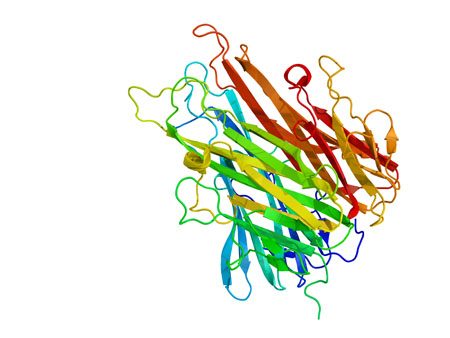Infliximab Helps the Subgroup of Bipolar Depressed Patients Who Faced Adversity in Childhood
At the 2019 meeting of the International Society for Bipolar Disorders, researcher Mike Cosgrove and colleagues described a study of the immune-suppressing drug infliximab in adults with bipolar disorder. The researchers found persistent significant improvements on infliximab only in those with bipolar disorder who also had a history of childhood adversity. Childhood adversity is consistently associated with elevated levels of inflammatory cytokines, and baseline inflammation may be a prerequisite for a positive effect from infliximab, which works by blocking the inflammatory cytokine TNF alpha.
Anti-Inflammatory Treatments Improve Depression
Inflammation can interfere with the balance of neurotransmitters in the brain, making antidepressants less effective. Anti-inflammatory treatments (such as those used to treat rheumatoid arthritis) may help. In a 2016 meta-analysis published in the journal Molecular Psychiatry, researchers led by Nils Kappelmann analyzed the results of 20 clinical trials of chronic inflammatory conditions where depressive symptoms were also recorded. In a subset of 7 clinical trials that compared anti-inflammatory treatment to placebo, they found that anti-inflammatory treatment improved depressive symptoms significantly compared to placebo.
The anti-inflammatory drugs studied most often targeted the inflammatory marker tumor necrosis factor (TNF) alpha using an antibody. Some of the anti-inflammatory drugs that improved depressive symptoms were adalimumab, etanercept, infliximab, and tocilizumab.
The researchers also found that those participants with the most inflammation when they began treatment saw the largest improvement in their depression after taking anti-inflammatory treatments.
Kappelmann and colleagues suggest that inflammation may cause depression, and that anti-inflammatory drugs may be useful in the treatment of depression in people with high inflammation.
Finding Treatments That Work For Each Patient
At a recent scientific meeting, researcher Andrew H. Miller presented data on infliximab, an inhibitor of the inflammatory cytokine TNF alpha that is used to treat rheumatoid arthritis and is being explored for the treatment of depression. As previously reported in BNN Volume 16, Issue 2 from 2012, the drug was not effective overall among the depressed patients, but in a subgroup of patients with high levels of the inflammatory marker CRP, infliximab was highly effective. Miller emphasized that patients do not fail to respond to treatments; it is doctors who fail, or drugs that fail. He explained that there is tremendous heterogeneity in people’s illnesses, and doctors must get better at sorting out what treatments will work for each patient, striving toward personalized therapeutics.
There are many clinical correlates or predictors of nonresponse to antidepressants used in unipolar depression. These include inflammation, obesity, stress in childhood, anxiety disorder comorbidity, substance abuse comorbidity, and medical comorbidity.
Editor’s Note: How do we doctors target these clinical correlates of illness for better therapeutic effects? We are just starting to learn, and until we identify good markers for predicting illness, the best we can do is carry out carefully sequenced clinical trials of medications and therapies with different mechanisms of action.
Patients can assist their physicians and clinicians by engaging in precise, preferably nightly charting of their mood, functioning, medications, life events, side effects, and other symptoms such as anxiety on a personal calendar. Several of these are available for free download, and there are other longitudinal screening instruments, such as the website and app What’s My M3.
A good personal response to a novel treatment or a poor response to an Federal Drug Administration–approved treatment trumps anything that is written in the research literature. The best way to achieve the best outcome is to engage in excellent monitoring of symptoms and side effects that can guide the next steps in therapeutics.
Inflammation and Mood Disorders
There is increasing evidence of a link between inflammation, brain function, and treatment resistance in the mood disorders. Obesity is also linked to inflammatory processes and thus may contribute to the development of treatment resistance in both unipolar and bipolar mood disorders.
Causes of Inflammation
 Obesity is one factor that can lead to increases in inflammation. When people gain weight, the size of fat cells can increase to the point that the cells are deprived of oxygen and disintegrate. Then macrophages and other cells come in to sweep up the remaining particles of the fat cells. These scavenger cells then become activated and produce more regulatory chemicals called cytokines. The cytokines produced in the periphery (in the body outside the brain) can then enter the brain and affect brain function in a process that may ultimately be linked to fatigue, depression, and other adverse mood and behavior states that contribute to treatment resistance. There is a two-way street: the brain can influence the body and what goes on in the body can influence the brain.
Obesity is one factor that can lead to increases in inflammation. When people gain weight, the size of fat cells can increase to the point that the cells are deprived of oxygen and disintegrate. Then macrophages and other cells come in to sweep up the remaining particles of the fat cells. These scavenger cells then become activated and produce more regulatory chemicals called cytokines. The cytokines produced in the periphery (in the body outside the brain) can then enter the brain and affect brain function in a process that may ultimately be linked to fatigue, depression, and other adverse mood and behavior states that contribute to treatment resistance. There is a two-way street: the brain can influence the body and what goes on in the body can influence the brain.
Other factors that can lead to increases in inflammation and eventually to treatment resistance in the unipolar and bipolar mood disorders include early life stress, medical illness, and anxiety and personality disorders.
Anti-Inflammatory Treatments
Given the close links between inflammation and depression (discussed in BNN Volume 15, Issue 1 from 2011), Andrew H. Miller of Emory University decided to test a specific anti-inflammatory agent called infliximab (a TNF monoclonal antibody that inhibits TNF alpha actions) as an antidepressant. One sign of inflammation is a C-reactive protein (CRP) level of 2mg/L or greater. The effect of infliximab on the population of treatment refractory depressed patients who participated in Miller’s study was not significant on the whole, but the drug did have significantly greater antidepressant effects than placebo in those patients with the highest levels of CRP. The investigators believe this demonstrates the principle that a drug that inhibits TNF alpha may be useful in patients with the greatest degree of inflammation.
Other approaches to anti-inflammatory mechanisms are also being pursued, including use of aspirin, COX-2 inhibitors, and the antibiotic minocycline. Minocycline has anti-inflammatory and neuroprotective effects and has been reported to have positive effects in cognition and negative symptoms of schizophrenia.




